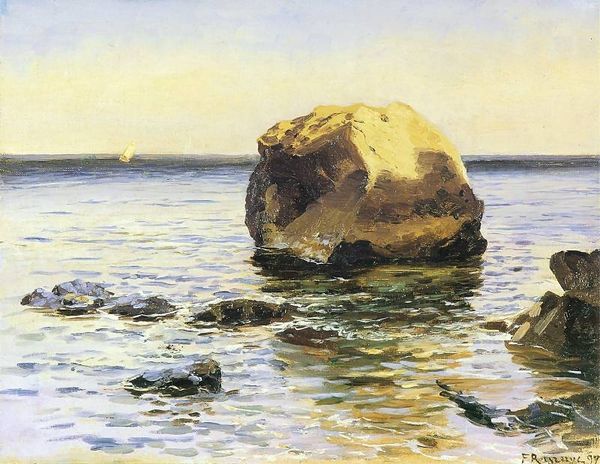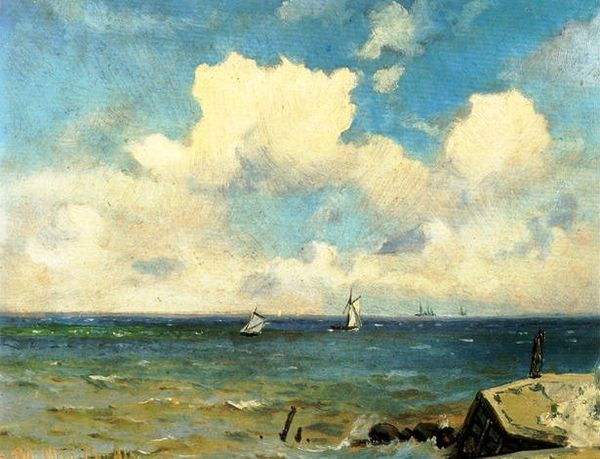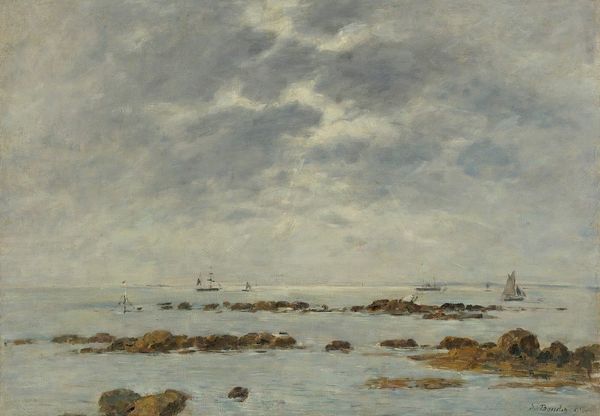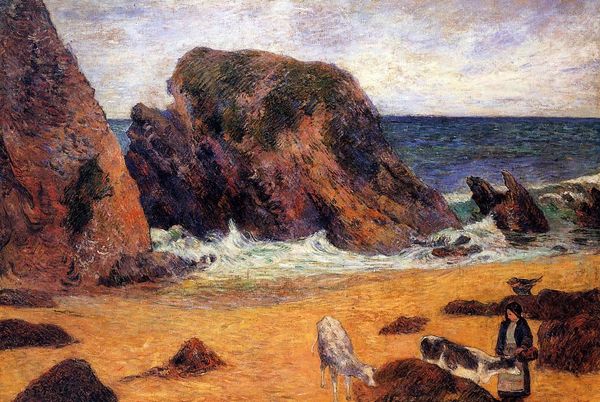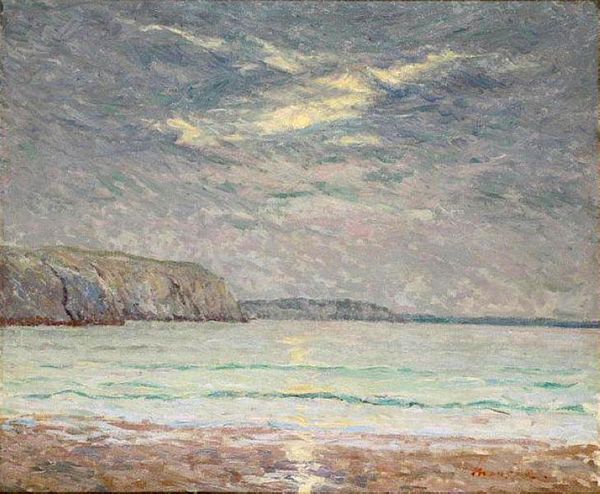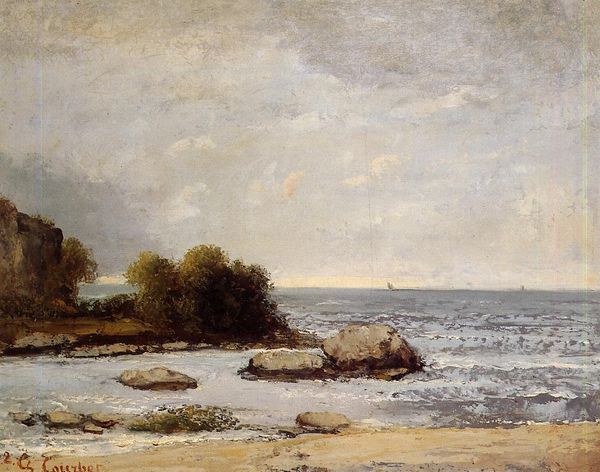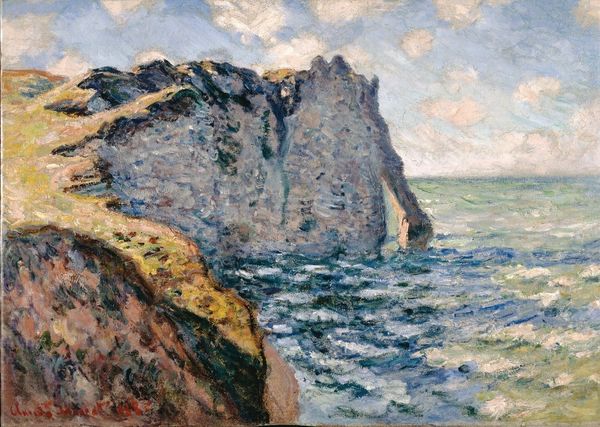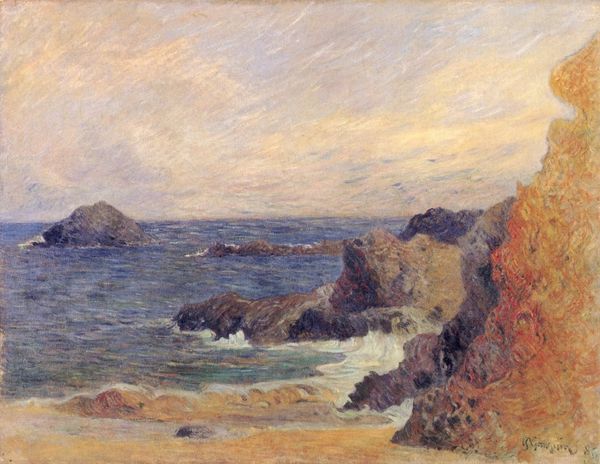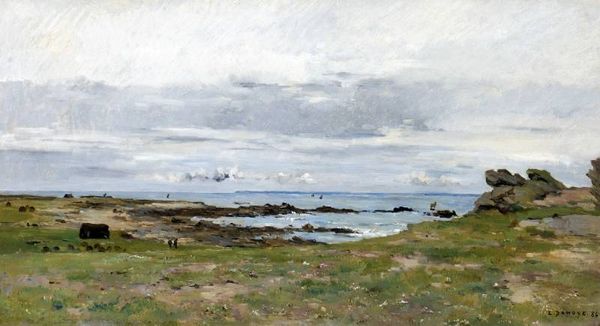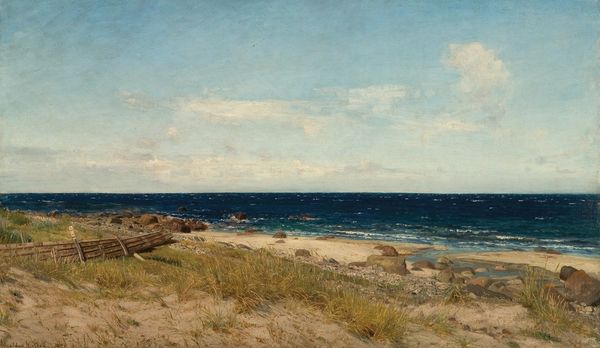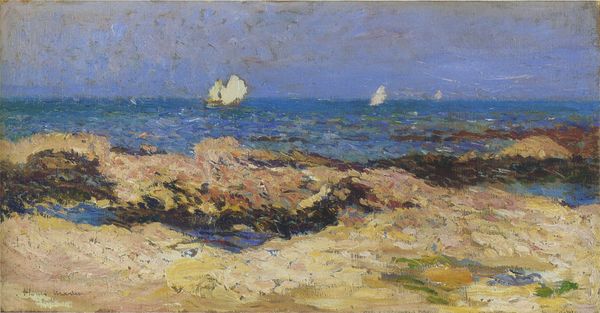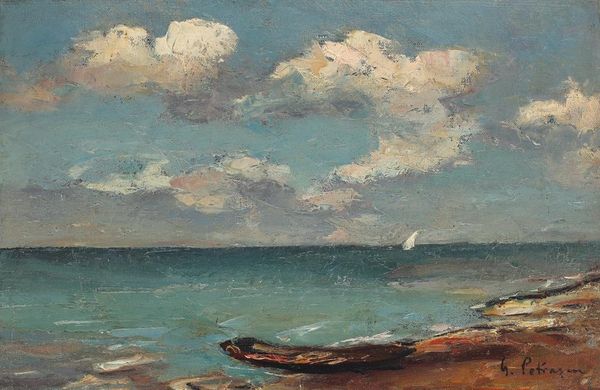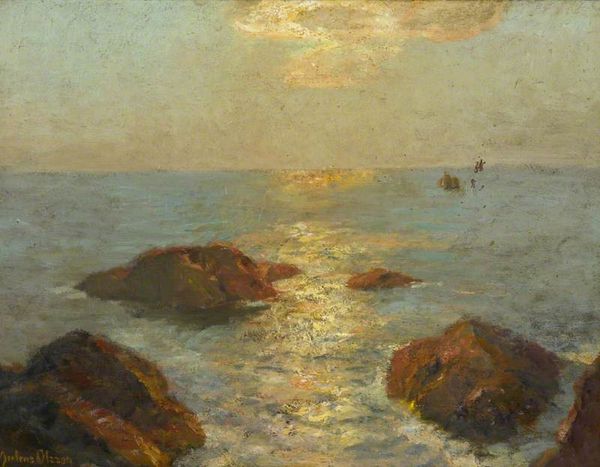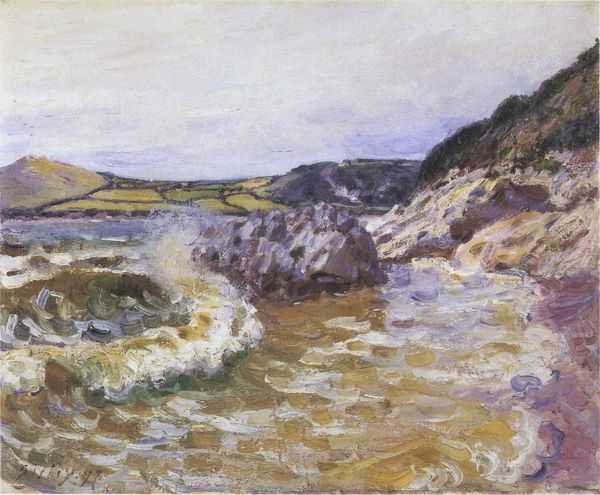
Dimensions: 65 x 81 cm
Copyright: Public domain
Editor: Here we have Alfred Sisley's "Langland Bay, Storr's Rock, Morning," an oil painting from 1897. There's a sort of stillness to it, despite the subject being the sea. The rock feels monumental, solid against the transience of the waves. What do you see in this piece? Curator: It's tempting to view this simply as a beautiful Impressionist landscape, but situating Sisley within broader social and political narratives opens fascinating possibilities. Consider the context: late 19th-century Europe, rife with anxieties about industrialization and urbanization. What might this seemingly innocent scene of nature represent in relation to those concerns? Editor: I hadn’t considered that. So, the rock might be a symbol of something... of resistance? Curator: Potentially, or of refuge, or even a stubborn refusal to be moved by the currents of change. Think about the burgeoning tourist industry at the time; places like Langland Bay were becoming increasingly commodified. Was Sisley, consciously or unconsciously, grappling with the impact of tourism on the natural landscape and local communities? Editor: That's interesting. The painting does feel very personal, almost like a captured moment of solitary observation. Could this work express tensions between personal experience and wider, potentially disruptive societal forces? Curator: Exactly! And that tension is crucial. Furthermore, we might consider Sisley's own identity as a British artist working within the French Impressionist circle. How does his "outsider" status inform his perspective on landscape and belonging? Editor: So, beyond its aesthetic appeal, it encourages us to think about landscape painting as more than just a pretty scene. Curator: Precisely. It invites us to question the role of art in representing and negotiating complex relationships between nature, culture, and identity. Editor: I'll never look at an impressionist landscape the same way again. There's always a context that is larger than the art itself! Curator: Absolutely. Art is both a product and reflection of the world around it, and viewing the world as multifaceted will lead to a deeper interpretation of the artworks that you enjoy.
Comments
No comments
Be the first to comment and join the conversation on the ultimate creative platform.
